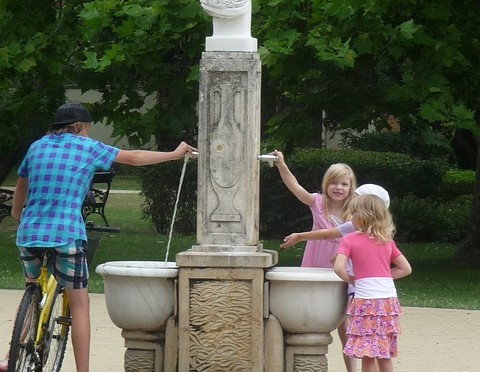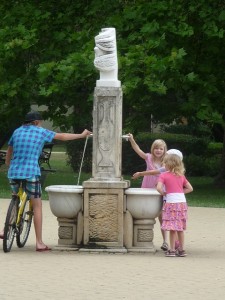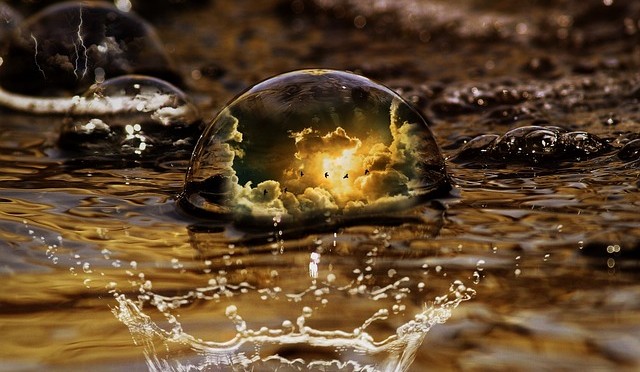
March 22, 2016 marked another World Water Day, a day set aside for international observation and opportunity to learn about water related issues, be inspired to tell others and take action to make a difference.
A Human Right
There are many non profit organizations and devoted individuals that dedicate themselves to the belief that clean water should be a human right.
A Luxury In Africa
The inspiration of artist Catherine Fenton is “women without the luxury of running water that waste hours everyday fetching water. Time that could be spent on education or more productive work.”

SOUTHERN AFRICA. Lesotho. School children during a rainstorm….
In Africa, some women literally carry the burden of collecting water for their families. Clean water sources are often far from their village, demanding that women and girls take action to walk for hours to retrieve their family water supply. The journey can be long, taking hours, subjecting women and girls to carry heavy loads of water on their heads. Education for women can becomes secondary to the needs of hauling water for the family.
Enjoy this African Rain Song



 So many of us may have become complacent about the water that has seemingly so easily flowed through our faucets and garden hoses. In the United States,
So many of us may have become complacent about the water that has seemingly so easily flowed through our faucets and garden hoses. In the United States, 
